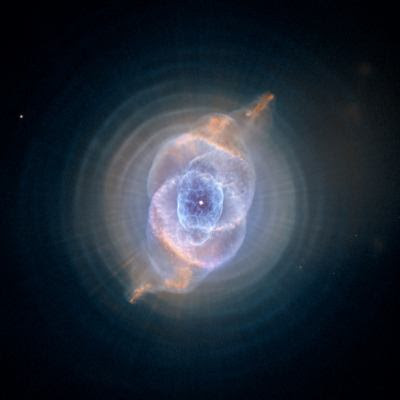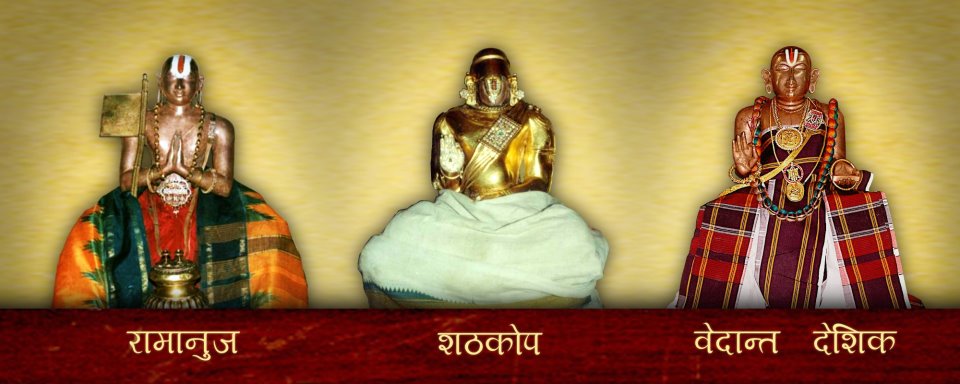The SatadUshaNi is an important classic of Visishtadvaita Vedantha composed by Swami Desikan, in which as the title suggests, one hundred philosophical issues have been chosen for systematic criticism directed against the school of Advaita. Previous parts of this article can be read from: http://anudinam.org/tag/satadushani/
THE present artcile is devoted to a discussion of the theory of consciousness anubhuti as advocated by the Advaitin. According to Advaita Vedanta consciousness is an independent and eternally existing Reality. It is pure contentless knowledge which is neither produced nor destroyed. It manifests everything else but is itself not manifested by any other entity (syamprakasa). Such a knowledge is identical with the Reality. It is, in other words, Brahman itself. The consciousness that is apparent in the usual distinction of knower, known and knowledge is not real but is only empirical (vyavaharika). It is the psychosis of the inner organ (antahkarana vritti) and is regarded as knowledge because of its being a determinant of consciousness.
Both Ramanuja and Vedanta Desika have devoted great attention towards the criticism of the above theory in so far as it is in direct opposition to common experience. Knowledge for the Visistadvaitin, as for any other realist, implies on the one hand a subject to which it belongs, and on the other, an object to which it refers. Knowledge, as such is always found to be a function of the subject. It always and necessarily pertains to the sell; which is a permanent spiritual entity. The Visistadvaitin, therefore, does not admit that consciousness is identical with Reality.
I Advaitin’s Theory of Consciousness: Before going into a detailed discussion of this theory of knowledge, let us state briefly the view of the Advaitin. The Advaitin contends that the existence of a transcendental consciousness which is undifferentiated and indeterminate in character cannot be doubted as it is self-evident or self-proved (svatah-siddha). It is the basic experience on which is dependent all determinate knowledge and as such it needs no further proof in respect of itself. If such a foundational experience or consciousness were not admitted, then knowledge itself would not be established, and consequently nothing would be manifested in the universe. Though such an experience is not clearly manifest in the waking state, it is apparent in the states of dreamless sleep (susupti), trance (samadhi) and release (mukti), where consciousness manifests itself in its true nature. As regards the nature of consciousness, the Advaitin points out that it is self-luminous (svayam-prakasa). That is, it reveals every other object but  itself is not revealed by any other entity. If it were manifested by anything else, it would no longer be consciousness. Its essential nature, therefore, consists in its being self-luminous. In terms of modern philosophy, consciousness is a pure subject and it can never be an object.” Thus, it is stated in the form of a syllogistic argument: “Consciousness is self-luminous, because it is consciousness; if consciousness were the object of another knowledge, it would not be consciousness, as in the case of a pot”. “Consciousness- which is self-luminous is eternal (nitya), because it is neither produced nor destroyed. Whatever is produced must admit itself a prior non-existence. Even granting that there is a prior non-existence of consciousness, how is it known? It cannot be apprehended through that very consciousness itself, because the two are incompatible. While there is the prior non-existence, consciousness is not produced and as such there is nothing to cognise it; when consciousness is produced, its prior-non-existence would not be there to be cognised. Nor can the prior non-existence of consciousness be apprehended through some other knowledge. The cognition of the non-existence (abhava) necessarily pre-supposes the knowledge of its counter-correlate. The counter correlate of the prior non-existence of consciousness is the consciousness itself. But consciousness as has already been pointed out, cannot be an object ol’ another cognition. ‘1`he prior non-existence of consciousness cannot, therefore, be proved. Hence consciousness is unproduced.’
itself is not revealed by any other entity. If it were manifested by anything else, it would no longer be consciousness. Its essential nature, therefore, consists in its being self-luminous. In terms of modern philosophy, consciousness is a pure subject and it can never be an object.” Thus, it is stated in the form of a syllogistic argument: “Consciousness is self-luminous, because it is consciousness; if consciousness were the object of another knowledge, it would not be consciousness, as in the case of a pot”. “Consciousness- which is self-luminous is eternal (nitya), because it is neither produced nor destroyed. Whatever is produced must admit itself a prior non-existence. Even granting that there is a prior non-existence of consciousness, how is it known? It cannot be apprehended through that very consciousness itself, because the two are incompatible. While there is the prior non-existence, consciousness is not produced and as such there is nothing to cognise it; when consciousness is produced, its prior-non-existence would not be there to be cognised. Nor can the prior non-existence of consciousness be apprehended through some other knowledge. The cognition of the non-existence (abhava) necessarily pre-supposes the knowledge of its counter-correlate. The counter correlate of the prior non-existence of consciousness is the consciousness itself. But consciousness as has already been pointed out, cannot be an object ol’ another cognition. ‘1`he prior non-existence of consciousness cannot, therefore, be proved. Hence consciousness is unproduced.’
The fact that consciousness is not produced implies that it cannot undergo any transmutation (vikara). Thus it is argued: “Consciousness is immutable (nirvikara), because it is not produced; whatever is mutable is produced; as for instance, the pot”. As consciousness is unproduced it does not admit of any plurality. Plurality is the characteristic feature of objects which are produced. To put it in the form of a syllogistic argument: “Consciousness is not manifold (na nana) because it is un originated; whatever is manifold, is originated, as for example, the pot”. The plurality of consciousness that is found in our ordinary experience is not real in so far as it is conditioned by the different objects as well as the different finite selves. This is comparable to the single moon which appears to be many when reflected in the waves.
Consciousness does not also admit of any difference within itself. It is undifferentiated in character, because it is consciousness; whatever admits differentiation is invariably invariably found to be an object. Besides the qualities (visesas) are objective and cannot be attributed to consciousness which is a pure subject. The transcendental consciousness which is self-luminous, eternal, and immutable is the very self (atman) in so far as it is sentient (ajada), unlike an object. True knowledge, in other words, is identical with the Reality. The main contention of the Advaitin regarding the nature of consciousness or anubhuti are:
- (1) Consciousness is self-proved (svatah-siddha);
- (2) it is not an object of another knowledge (avedya);
- (3) it is eternal having neither a beginning nor an end (nitya);
- (4) it is immutable (nirvikara);
- (5) it is not many but one;
- (6) it is undifferentiated in character (nirvisesa);
- (7) and lastly it is the very self (atman).
 Vedanta Desika subjects each one of them to a critical examination, devoting a separate vada for each issue. The criticism is mainly based on the Visistadvaitic theory of knowledge, viz., that consciousness is that which involves the duality of the subject and the object and as such it is not a pure subject but a function or an attribute of it. Though it is self-luminous, it is not absolutely unknowable. It is not eternal in the sense the Advaitin understands, as it is a transitory function of the subject. It is _not one but many and is also subject to change in the form of contraction and expansion. Lastly, it can never be identical with the self in as much as consciousness is its attribute only.
Vedanta Desika subjects each one of them to a critical examination, devoting a separate vada for each issue. The criticism is mainly based on the Visistadvaitic theory of knowledge, viz., that consciousness is that which involves the duality of the subject and the object and as such it is not a pure subject but a function or an attribute of it. Though it is self-luminous, it is not absolutely unknowable. It is not eternal in the sense the Advaitin understands, as it is a transitory function of the subject. It is _not one but many and is also subject to change in the form of contraction and expansion. Lastly, it can never be identical with the self in as much as consciousness is its attribute only.
To be Continued..











If consciousness is a nonexistance object when it coexists with soul which is the index of mind,it becomes a reality.